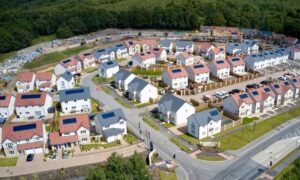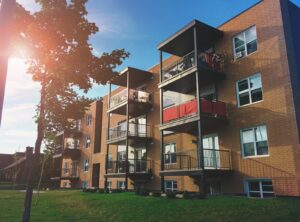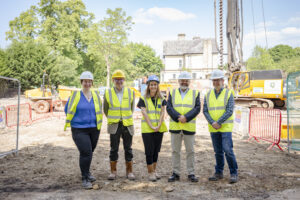 An independent commission set up by the homeless charity Shelter has called for 3.1m social homes to be built in a bid to solve the country’s growing housing crisis.
An independent commission set up by the homeless charity Shelter has called for 3.1m social homes to be built in a bid to solve the country’s growing housing crisis.
In a new report, Shelter’s social housing commission for a major 20-year housebuilding programme, including 1.27m new social homes for those who are currently homeless, living with a disability or a long-term.
In addition, it calls for an extra 1.17m social homes to be built to help younger families who cannot afford to buy and face a lifetime in expensive and insecure private renting.
And it recommends an extra 690,000 homes be built for people over 55, who are struggling with high-housing costs and insecurity after they retire.
The report warns that the current housing crisis has been mainly caused by people being forced to rent, because homes are too expensive to buy.
‘Many private renters on low incomes struggle to afford their rent, so too many cut back on food or clothing, or go into a spiral of debt they have little hope of escaping,’ the report states.
‘At the sharpest end of the crisis, more and more people are being left homeless,’ the report adds.
‘An alarming 277,000 people are now homeless in England, most commonly because they’ve lost their private rented home.’
The report adds that the decline in the number of new social homes being built has also contributed to the crisis.
From 1945 to 1980, an average of 126,000 social homes were built every year, but in 2017 only 6,463 were delivered.
It warns that a generation of young families will be ‘trapped’ in private rented accommodation for their whole lives.
The report also estimates that by 2040, a third of 60-year olds could be renting privately.
‘There needs to be a profound shift to see social housing as a national asset like any other infrastructure,’ said commissioner and former Conservative minister, Lord Jim O’Neill.
‘A home is the foundation of individual success in life, and public housebuilding can be the foundation of national success. It is the only hope the Government has of hitting its 300,000 homes a year target.
‘The Government’s budget for capital expenditure is £62 billion a year – our housebuilding programme would cost only a fraction and is well within its financial reach,’ added Lord O’Neill.
‘With current spending on housing benefit shockingly inefficient, it’s not hard to see what an investment in bricks and mortar could do to help solve the housing crisis and boost our economy.’
Commenting on the report, the chief executive of the Joseph Rowntree Foundation, Campbell Robb said: ‘The serious lack of affordable housing is locking families out of achieving a decent life.
‘With high rents and housing benefit frozen, millions of families are backed into a corner, leaving them in a daily struggle to get by.
‘Now is the time for the Government to step up and act upon the concerns of struggling families. The upcoming Spending Review later this year offers ministers the chance to make a real difference to people’s lives by dramatically increasing the supply of social homes that will loosen the grip of poverty for families on low incomes.’


















Leave a Reply